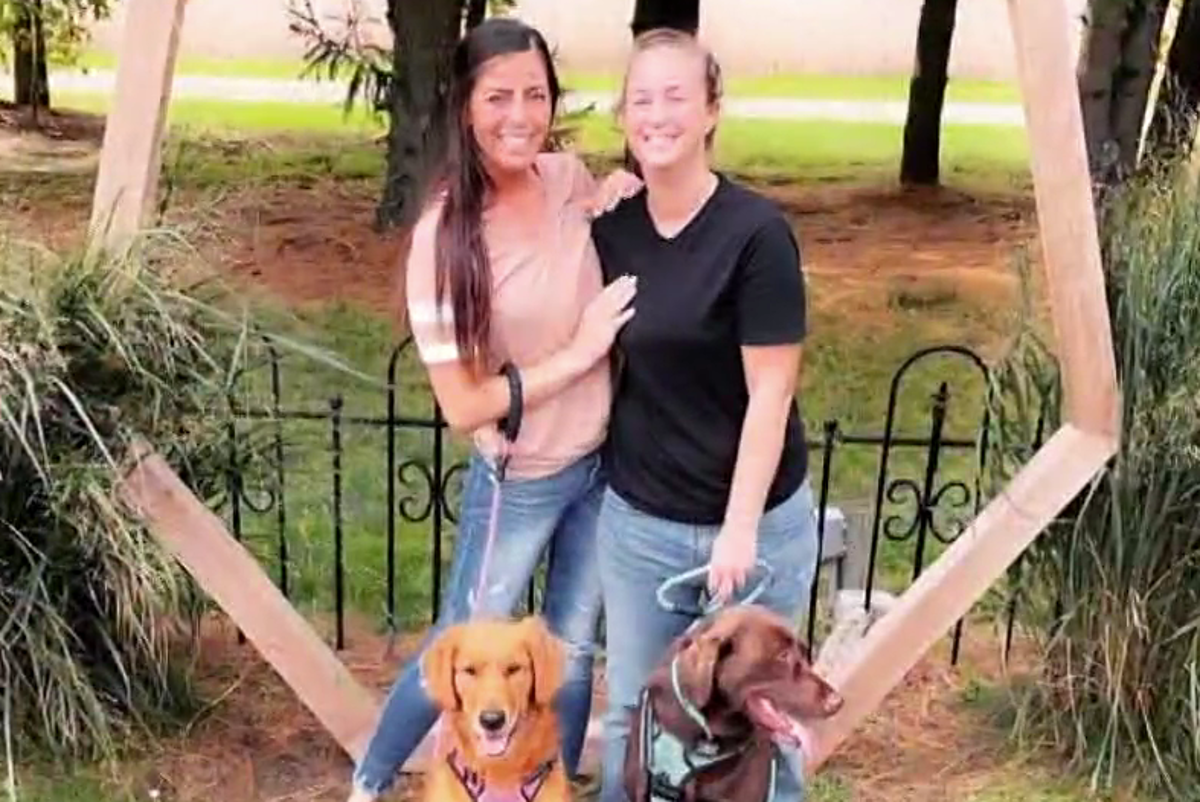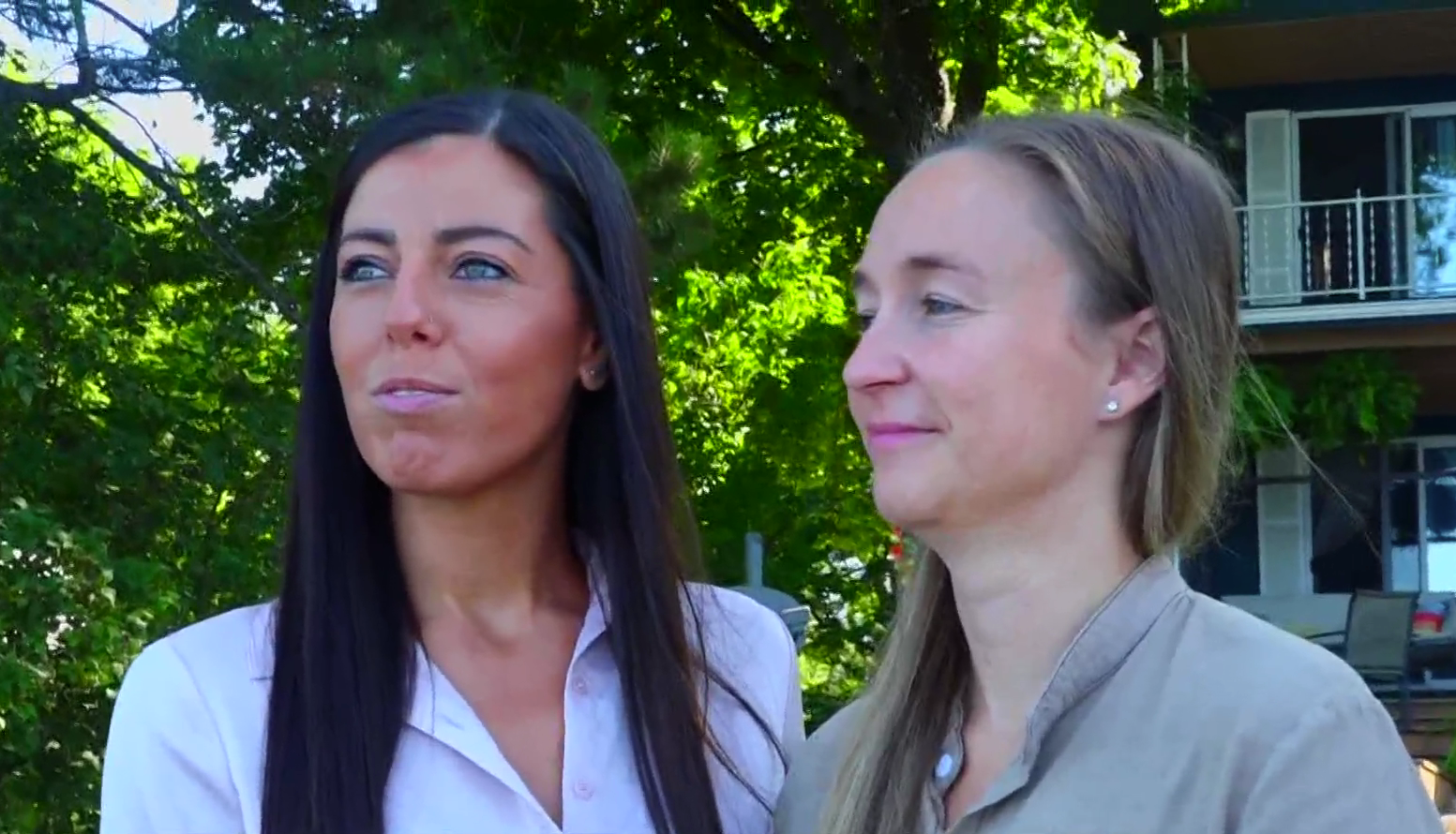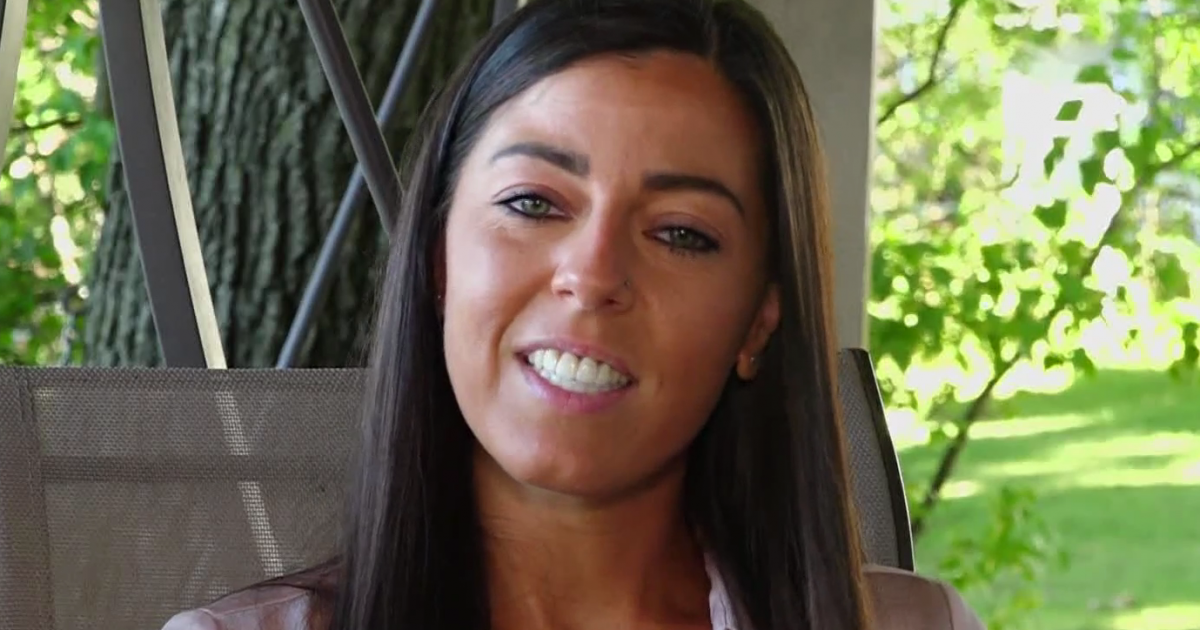A Fertility Clinic Helped Her Find Her Cancer
- Tiffanie Proctor, 31, was planning to start a family when she visited a fertility clinic. A blood test revealed she had a low white blood cell count, prompting more testing to be done until she learned of her triple-negative breast cancer diagnosis.
- The bride-to-be has since postponed her wedding and is set to start an aggressive treatment plan, which includes chemotherapy and a double mastectomy.
- Now on a mission to advocate for others as she fights, Tiffanie Proctor is urging other women to do their own breast exams and get checked if they feel a lump.
The Bride-to-be, of Kalamazoo, Michigan, learned of her breast cancer diagnosis in 2022, just two years after getting engaged to her fiancé Sarah Svoboda. The couple has since decided to postpone their wedding after discovering the unexpected news, however, Proctor is using her diagnosis to inspire others to self-examine for breast cancer and get checked.
Read More
Proctor’s fiancé called the diagnosis “a shock,” adding: “You don’t think at our age where you’re going to go through something like that.” Now, she has been advised to follow an intense treatment plan, which includes chemotherapy and a double mastectomy.
“The best bet to avoid this coming back would be to have it fully removed,” Proctor explained, noting how triple-negative breast cancer has a high reoccurrence rate.

Before Proctor begins her cancer treatment, she and Svoboda have decided to get their photos taken on Sunday, August 7, since their wedding date was postponed until next year. "Our photographer is flying in from Florida, he said he wouldn't miss it, he’s going to do photos as if it were the real wedding day,” Proctor said.
Despite all the upcoming changes in Proctor’s life, the West Michigan woman is staying positive and using her diagnosis to spread breast cancer awareness. “Do your own breast exams,” she advises other women. “You feel a lump, push to get that checked. Because if I didn’t have a low white blood cell count, I probably wouldn’t have thought anything of it."

What Is Triple-Negative Breast Cancer?
Triple-negative breast cancer is one of the most aggressive forms of the disease. It is also one of the most common.
Tiffany Proctor is one of the estimated 20 percent of women diagnosed with triple-negative breast cancer. In a previous interview, Dr. Irene Wapnir, a surgical oncologist at Stanford Health Care, explained to SurvivorNet that this form of the disease got its name because it lacks the three main drivers of breast cancer: the estrogen receptor, the progesterone receptor, and the HER2 receptor.
As a result, it does not respond to traditional treatments that drugmakers created to target those drivers.
Patients have the most success beating the disease with chemotherapy like Proctor or enrolling in a clinical trial.
What Is Triple-Negative Breast Cancer
Chemo For Triple-Negative Breast Cancer
Proctor is set to undergo chemotherapy during her triple-negative breast cancer battle.
Dr. Elizabeth Comen, a medical oncologist at Memorial Sloan Kettering Cancer Center, told SurvivorNet that it is still the most effective treatment plan for women battling the disease.
"If a woman has triple-negative breast cancer, meaning she is not hormone-receptor-positive or HER2-positive, then the first line is really to give unless it's part of a clinical trial is really to offer chemotherapy," explained Dr. Comen.
"Triple-negative breast cancers are most responsive to chemotherapy at the outset. Of course, there are many other options that a woman may be able to explore, including immunotherapies as part of a clinical trial and other targeted therapies that may be appropriate depending on what clinical trials are available where she is being treated."
Once treatment is over, a lifetime of monitoring begins for women.
How a 31-Year-Old's Path in Life was Completely Changed After a Shocking Breast Cancer Diagnosis
"We know that breast cancer can come back years, even decades, later. So, what sort of monitoring do we do? In the beginning, when a woman has recently completed her treatment, I usually see women every three to four months to do a breast exam," said Dr. Comen.
"They will get imaging every year or every six months, depending on, in conjunction with the surgeon or radiologist what may or may not be appropriate for imaging. We may do blood work about once a year."
Dr. Comen said she also uses those visits to talk to the women and see how they are feeling and anything that seems off.
"Do they have a pain that hasn't gone away in months? Or, Do they have shoulder pain now and again when they play tennis? But it goes away. It gets better, and it comes back months later, and then gets better," said Dr. Comen.
"There are different types of aches and pains that we think about and that we look for with patients."
Chemo For Triple-Negative Breast Cancer
Contributing: SurvivorNet Staff
Learn more about SurvivorNet's rigorous medical review process.


